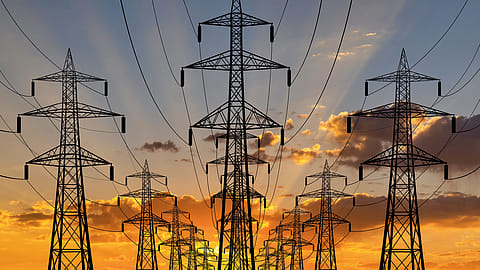Tata Power’s Mantra: Skill All
Transitioning to a green future, the company is prepping employees through reskilling, upskilling and management training initiatives.

This story belongs to the Fortune India Magazine April 2023 issue.
HIMAL TEWARI is a man on a mission. As Tata Power transitions from conventional to green energy, a mix of regulated and non-regulated businesses, and becomes more consumer-oriented, its chief human resources officer is shouldering the responsibility of skilling, reskilling, and redeploying employees.
The 108-year-old power company has major growth plans for the next five years, centred around solar/hybrid engineering and procurement, and construction (EPC) — a proposed 4GW solar cell and module manufacturing plant in Tamil Nadu, scaling its transmission business, turning around four discoms in Odisha, and providing energy as a service (EaaS). It also plans to expand deeper into non-regulated businesses, including solar pumps, solar rooftop installations and EV charging.
The company is preparing the workforce for future by undertaking various skilling initiatives. Among them is Tata Power 2.0, a change management programme launched in FY20, which focuses on digital and technological transformation, and customer centricity.
The idea, says Tewari, was to create an organisation-wide transformation programme led by learning. For this, the Mumbai-headquartered company created in-house functional academies for its employees to build capacity by creating a leadership pipeline and a future-ready talent pool. It currently runs four skill academies — digital, project management, sales, and customer service. The three-year-old digital academy provides certifications for data scientists, data analysts, and data engineers, focused on key skills, including creating data models and algorithms. Around 400 employees have already been trained in the academy, and another 200 are undergoing training. “Over a period of time, we want to cover the entire organisation,” says Tewari.
Not just IT, the digital academy is meant for employees across functions, including operations, maintenance, core procurement, finance and HR. Similarly, at the company’s project management academy, which it runs along with the National Institute of Construction Management and Research, 110 people are trained every year.
The sales academy is another important centre for Tata Power staff, especially with the company’s increasing focus on B2C businesses. Around 200 people are trained at the academy annually. “Now we have to acquire customers for rooftop solar, EV charging, and home automation. The sales academy was created to build capability across sales channels, brands above the line, below the line, digital marketing, sales management, etc,” says Tewari.
Reskilling employees is crucial as energy companies across the world transition to green alternatives and more countries commit to net-zero emissions by 2050. “As new industrial sectors emerge and clean energy jobs grow, India will need to ensure that no one is left behind, including in those regions that are heavily dependent on coal,” according to the International Energy Agency’s India Energy Outlook 2021. The International Labour Organization predicts India’s shift to a green economy could add 3 million jobs in renewables alone by 2030.
More Stories from this Issue
Tata Power also runs ‘Daksha’, aimed at future-proofing careers and equipping employees with relevant skills. The two-year-old initiative focuses on employees in the traditional thermal-based business, who are becoming a part of new businesses in future, including solar and wind, says Tewari. “The programme has been quite a success. We are now doing the second level of Daksha, where we are including our unionised employees also,” he adds. The reskilling programme, however, is voluntary as of now.
Transition also means working in a shifting landscape, especially for the top leadership. To groom future leaders, the company runs the ‘AMP Leadership Competency Model’, which takes a three-tiered approach towards leadership training. It has tied up with Indian Institute of Management, Ahmedabad for a 15-month AMP programme for senior leaders, with S.P. Jain Institute of Management and Research for middle management, and with XLRI and Tata Management Training Centre in Odisha for first-time managers.
Tata Power aims to boost diversity within the organisation, and increase the percentage of women employees to 20% by 2026, from 14.4% currently.
Meanwhile, the company is also getting younger, with the average age of employees expected to fall to 34 in a couple of years, from 38 currently. Tewari believes the transition to clean and green tech, and its societal impact should be attractive enough for the youth to be part of organisations that have goals beyond making profits. So, programmes such as Tata Power’s ‘Fuller Life’, focused on employee health and wellness, and its ‘Entrepreneur-in Residence’ programme that help fast-track careers are attractive to Gen-Zs, he adds.
(INR CR)